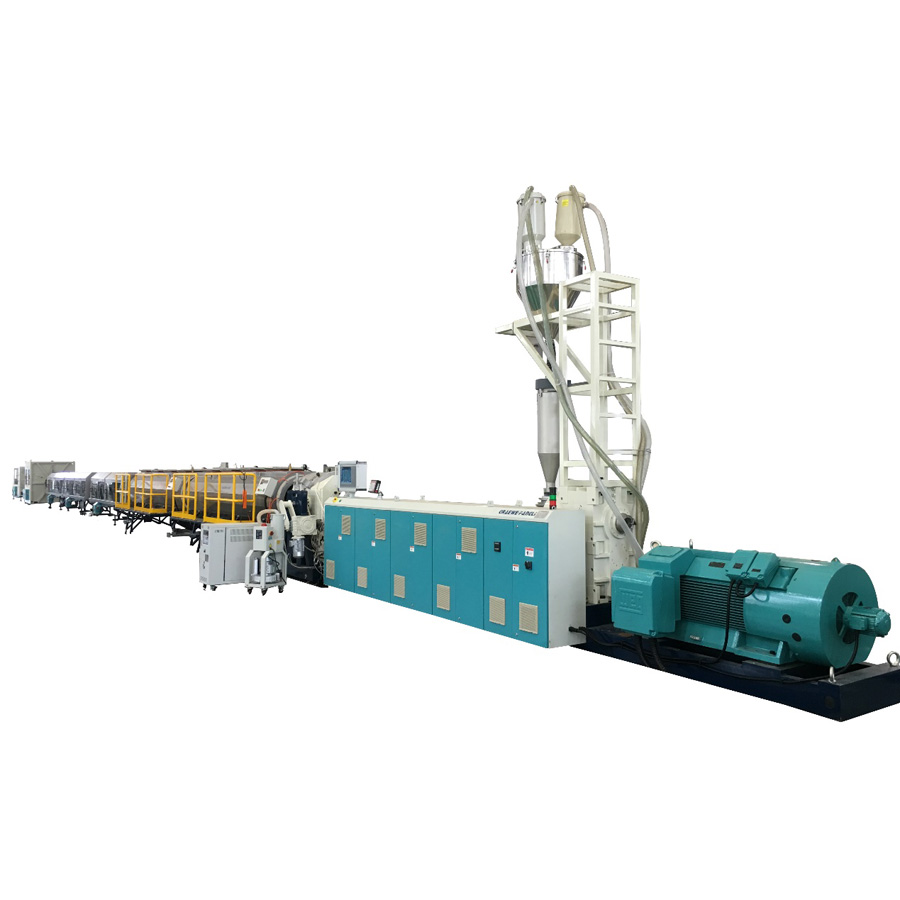- English
- Español
- Português
- русский
- Français
- 日本語
- Deutsch
- tiếng Việt
- Italiano
- Nederlands
- ภาษาไทย
- Polski
- 한국어
- Svenska
- magyar
- Malay
- বাংলা ভাষার
- Dansk
- Suomi
- हिन्दी
- Pilipino
- Türkçe
- Gaeilge
- العربية
- Indonesia
- Norsk
- تمل
- český
- ελληνικά
- український
- Javanese
- فارسی
- தமிழ்
- తెలుగు
- नेपाली
- Burmese
- български
- ລາວ
- Latine
- Қазақша
- Euskal
- Azərbaycan
- Slovenský jazyk
- Македонски
- Lietuvos
- Eesti Keel
- Română
- Slovenski
- मराठी
- Srpski језик
What is pipe extrusion line UL
2025-03-13
A pipe extrusion line UL generally refers to a pipe extrusion production line that complies with UL (Underwriters Laboratories) standards. UL is a globally recognized safety certification organization that sets standards for product safety and quality, particularly in electrical, plastic, and industrial applications.
Understanding Pipe Extrusion Line UL
A pipe extrusion line is an industrial system used to manufacture pipes from thermoplastic materials such as PVC, HDPE, PPR, and PP. The extrusion process involves melting raw plastic materials, forming them into a continuous pipe shape, and cooling them to maintain their structural integrity.
When a pipe extrusion line is UL-certified, it means:
The materials used in the extrusion process meet UL safety standards (such as flame resistance, mechanical strength, and environmental compliance).
The manufacturing process follows strict quality control guidelines.
The final pipes produced meet UL-listed specifications, often required for electrical conduit, water supply, gas distribution, or industrial applications.
Common UL Standards for Pipe Extrusion
UL 651 – Standard for Rigid Nonmetallic Conduit (PVC Pipes)
UL 94 – Flammability Standard for Plastic Materials
UL 1284 – Plastic Pressure Pipe and Tubing Standards
UL 213 – Standard for Rubber and Plastic Pipe and Fittings for Fire Protection Systems
UL 1821 – Thermoplastic Sprinkler Pipe and Fittings
UL 2239 – Pipe Hangers and Supports
Industries Using UL-Certified Pipe Extrusion Lines
Electrical Industry (UL-certified conduits for wiring protection)
Plumbing and Water Supply
Fire Protection Systems
Gas Distribution
Industrial Chemical Piping
Why UL Certification is Important?
Ensures high-quality and safety compliance.
Required for certain regulatory approvals in the U.S. and other countries.
Enhances trust and reliability of the final pipe products in industrial and commercial applications.




